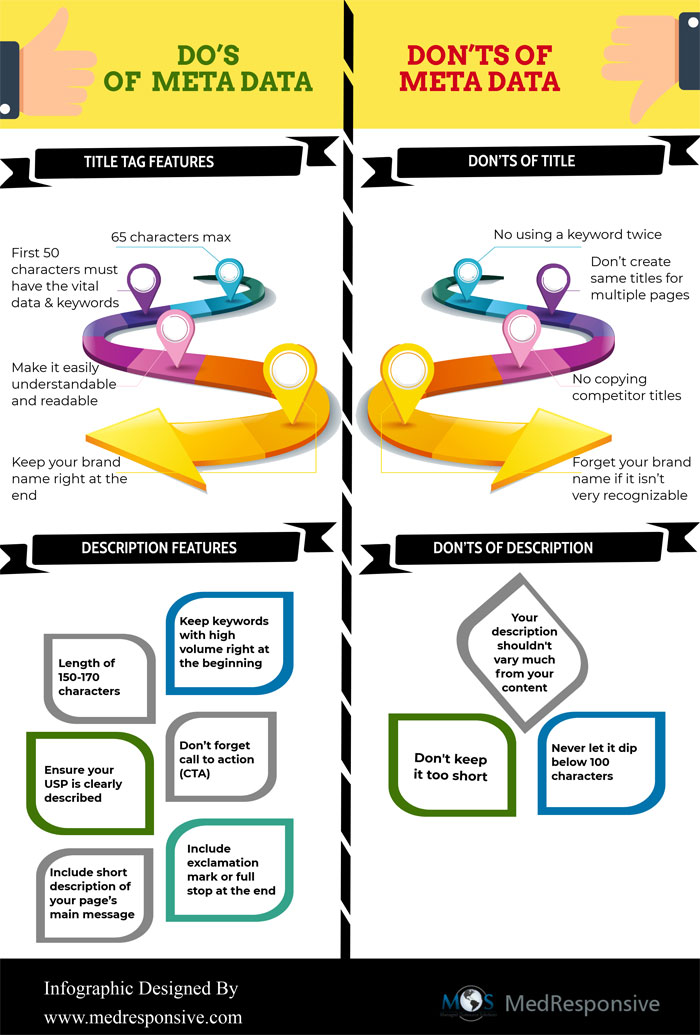In digital marketing and search engine optimization, there can often be misconceptions circling around as facts. An experienced website marketing company in Long Island would obviously be wary of that.
Snippets and metadata are important. They aren’t something just added for the sake of it. They’re probably as important as content. But that’s what many marketers or webmasters often don’t realize. With optimized meta title and meta description, you can improve your click-through rate because it influences how users perceive the quality of your web content. Meta tags may not be a factor for the ranking algorithms, but they do influence your SERP rankings indirectly.
Metadata Can Still Influence SERP Rankings
If you think how metadata influences your SERP positioning, it isn’t really much of a rocket science. You know that the meta title and description make up the snippet in the search results. The snippet is what people read to understand what your site or page is about.
- If your snippet content is relevant to what your page contains, and what the intention behind the users’ search is, users clicking your page would not be in for any rude surprises and would stay on your page longer or visit other pages of your site, reducing the bounce rate of your site and increasing the chances of conversions.
- Now what if your snippets are irrelevant? If your snippets are not relevant to the keywords or related search phrases your page is optimized for, there isn’t any possibility users would click it on the SERPs. Your site would come up in the SERPs alright, but people wouldn’t click it. So your page loses out on traffic. Less traffic reduces chances of conversions and could affect your rankings eventually, sending them down.
- And if your snippets are misleading, it does more damage. Users click your site expecting something but get something different. It’s a rude shock. Users would immediately leave your site in most cases, or would spend just a little time. Google’s algorithms would deduce that your page does not have anything much of value for the keywords or related search phrases it’s optimized for. That drops your rankings, which just isn’t good.
Tips for Great Metadata
There are three basic principles you need to remember when you create meta tags. Remember that the entire goal of meta tags is to get your page content described precisely. Accuracy is important here, as are relevance and attractiveness.
- Your meta tags should first be accurate and relevant to the content of your page which is already optimized for the relevant keyword or related search phrase.
- Attractiveness is essential because people must want to check out your page.
- But without relevance or accuracy, attractiveness can mislead people and be negative overall for your page.

How Metadata Should Be
Remember what the essential components of metadata are – title, description.
The title tags are really important since they are the first thing prospective customers browsing online would notice in the SERPs. Title tags make them actually click and enter your website. They need to be short, precise and attractive. Here’s how title tags should be:

The importance of meta tags can never be underestimated, even if they may not be ranking factors. It has to do with user experience and how they perceive your website to be. And how they respond to your results in the SERPs eventually affects your rankings. So pay heed to your metadata or let an experienced SEO company get it done for you.




